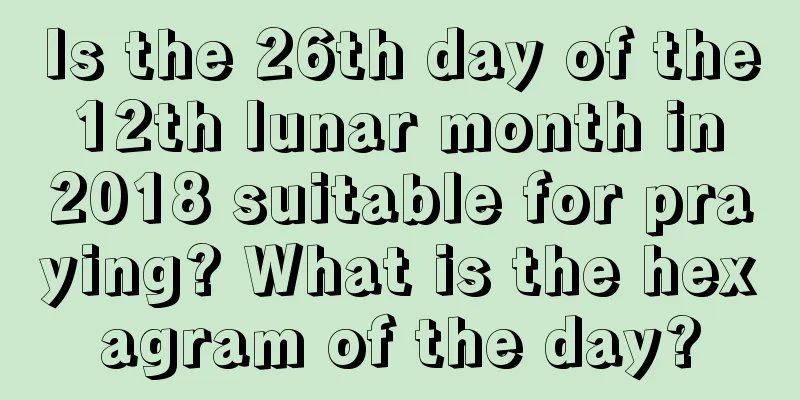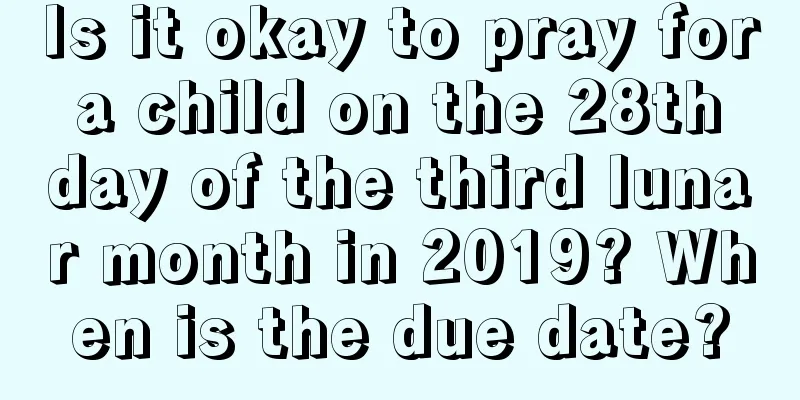What is the twelfth month of the lunar calendar called? Any other nicknames?

What is the twelfth month of the lunar calendar called? Any other nicknames? The twelfth month of the lunar calendar brings you not only the cold of winter, but also the hope of the New Year. Follow Mr. Shui Mo to learn about the twelfth month of the lunar calendar.What is the twelfth month of the lunar calendar called? Any other nicknames?The twelfth month of the lunar calendar is commonly known as "La Yue" in traditional Chinese folklore . If there are two Decembers in a lunar year, the first December is called "December (La Yue)" and the second December is called "Leap December (Leap La Yue)". So, why is the twelfth month of the lunar calendar called "La Yue"? December is the last month of the year, commonly known as the end of the year. It has more than 30 names for it, such as Ladong, Candong, Qiongdong, Layue, Bingyue, Yuyue, Jiyue, Qingsi, Dongsu, and Dalu. Among them, the most familiar and well-known one is "La Yue".The reason why it is called "La Yue" is because "La" is the name of the ancient people who worshipped ancestors and gods. "La means connection; it is the junction of the new and the old, so a grand sacrifice is held to reward the merits." "La" and "hunting" are homophones, so "hunting sacrifice" is also called "La sacrifice." According to legend, as early as the Zhou Dynasty, some places in my country have held the "year-end sacrifice" in this month, also known as "La". The objects of La Festival are ancestors and five family gods. The five household gods refer to the door, household, skylight, stove, and land inside the door. Because it is held in December, that month is called the La month, and the day of the La festival is called the La day. What is the La Festival tradition in the twelfth month of the lunar calendar?Since the Zhou Dynasty, the La Festival at the end of the year has been passed down from generation to generation until the present day. In Mr. Lu Xun's novel "Blessing" and the operas and films adapted from it, Mr. Lu's family always gives blessings at the end of the year. This blessing is actually the La Festival, which is a sacrifice to the ancestors and gods. The offerings are abundant, the scene is grand, the atmosphere is solemn, and the prayers are pious. It is truly "the biggest festival of the year.""La" means to ask for something. In the twelfth month of each year, all things are gathered together and asked for a feast." "La" and "La" are similar. Sacrificing to ancestors is called "La", and sacrificing to gods is called "La". "La" and "La" are both sacrificial activities, which are mostly carried out in the twelfth month of the lunar calendar, so people call the twelfth month the La Month. The twelfth lunar month is the end of the year. In ancient times, people had nothing to do during the farming season, so they went out hunting. One is to get more food to make up for the shortage of grain, and the other is to use the hunted wild animals to sacrifice to ancestors and gods, pray for blessings and longevity, avoid disasters and welcome good luck. There are many traditional customs in the twelfth lunar month. On the eighth day of the twelfth lunar month, "Laba porridge" is made with various grains. Some farmers also sprinkle the "Laba porridge" on doors, fences, firewood piles, etc. to worship the God of Grains. December 23rd is commonly known as the "Little New Year". In some areas people display incense, wax knife heads, sweets and fruits to offer to the "Kitchen God". In fact, most people nowadays do not believe in "gods" or the like. They do this just to follow certain ancient customs, or just for fun. What are the customs of the twelfth month of the lunar calendar?1. Tang flowersThe flowers brought into the palace during the twelfth lunar month were grown in greenhouses, also called "fumigation flowers". In the Ming Dynasty, peonies were the main flowers, while in the Qing Dynasty, gold, copper, etc. were used as a foil, alternating between red and yellow, which was even more gorgeous. Later, it was not only used as tribute, but also given as gifts to each other by officials. Flower farmers have a very hard time in the twelfth month of winter, as they need to light a fire day and night to maintain warmth and cultivate the flowers. It is said that this method originated in the Han Dynasty. Later, in addition to flowers, fresh vegetables such as green leeks, garlic sprouts, and winter onions were added. What’s funny is that at first, the imperial palace was not allowed to use this kind of fresh vegetables as tribute, let alone for offering to Buddha, because they were said to be “out of season” and harmful to people. 2. Cellar ice On the eighth day of the twelfth lunar month, the rivers in the capital began to break ice, and the ice from the Imperial River in the inner city was stored in the "inner kiln". The ice from Taiye Lake is stored in the "Snow Pool Ice Cellar". The ice from each moat was stored in earthen kilns near the river. To be sold in summer. In the late Qing Dynasty, ice-making was no longer limited to Laba, but usually took place during the "Three Nines" of the Winter Solstice. According to records, the custom of making ice began in the Zhou Dynasty. "King Cheng of Zhou ordered Lingren (ice makers) to cut the ice" and put it in Lingyin (ice cellar). It can be seen that this custom has a long history. In the 1950s, people could still be seen breaking ice on the shore of Shichahai. The neatly-packed large blocks of ice were pulled from the slope of the shore, loaded onto trucks, and sent to the ice cellar. 3. Spring Festival Couplets During the days of Kitchen God worship, a special profession emerged in the market - writing Spring Festival couplets. Literati and scholars set up a small stand at the corner of the street to sell Spring Festival couplets, formerly known as Tao Fu. They are usually written on the spot to improve the writing style, and the content of Spring Festival couplets is basically about bidding farewell to the old and welcoming the new. Spring Festival couplets are generally made of red paper, except in the inner court and the residences of royal families and princes, where white paper is used with a red or blue border. |
<<: Is it okay to travel on November 22, 2020 in the lunar calendar?
Recommend
Which comes first in 2021: the Spring Equinox or the Beginning of Spring? What is the difference between the two?
Both the Spring Equinox and the Beginning of Sprin...
Can I get a haircut during the Grain Full solar term in 2022? What should we pay attention to during the Grain Full solar term?
As summer begins and the weather gets warmer, the ...
Do people born on the third day of the third lunar month have good family fortunes and auspicious destinies?
The third day of the third lunar month is the Shan...
What can’t you do on the beginning of spring in 2021? Detailed introduction to the taboos of the beginning of spring
There are also many precautions and taboos on the ...
2019 June 13th auspicious time, auspicious and unlucky time query
The sixth month of the lunar calendar is also cal...
What is the fate of a boy born on September 14th of the lunar calendar in 2022?
Understanding the child’s innate fortune at birth ...
What are the do's and don'ts on the seventh day of the tenth lunar month in 2017?
Good things always happen in winter, because peop...
Is October 17th of the lunar calendar in 2020, the Year of the Rat, a suitable day to pray?
Is October 17th of the lunar calendar in 2020, the...
Is the Mid-Autumn Festival on August 15th of the lunar calendar in 2018 a good date? Is it an auspicious day?
Introduction: Every day has its good and bad luck,...
What is the fate of people born on the 25th day of the first lunar month? OK?
Introduction: Do you know what day is the 25th day...
Analysis of the second day of the fourth lunar month in 2022. Is it a good day to get a haircut?
The benefits of getting a haircut at different tim...
What should we pay attention to and what are the etiquettes when giving gifts during the Little New Year?
Little New Year is regarded as the beginning of th...
Where is the direction of the God of Happiness on May 12, 2017? Is the God of Happiness a lucky god?
The fifth month of the lunar calendar is the firs...
Has the counting of nine days started for the winter solstice in 2021? Is the winter solstice the first nine days?
The winter solstice arrives and the cold wind blow...
What are the do’s and don’ts on April 23rd of the lunar calendar in 2019?
April in the lunar calendar has entered summer an...









